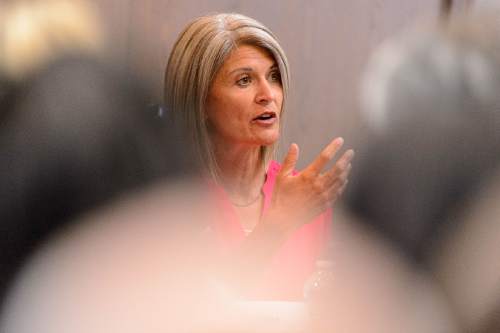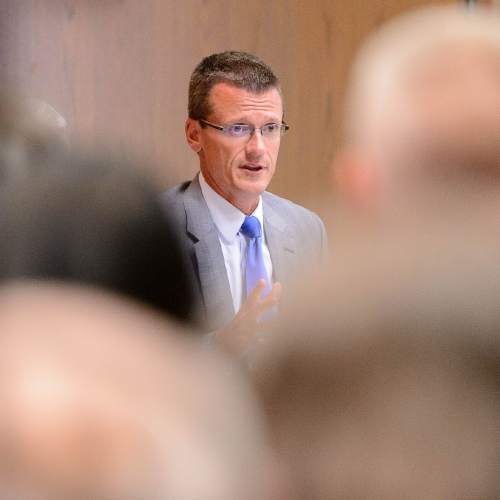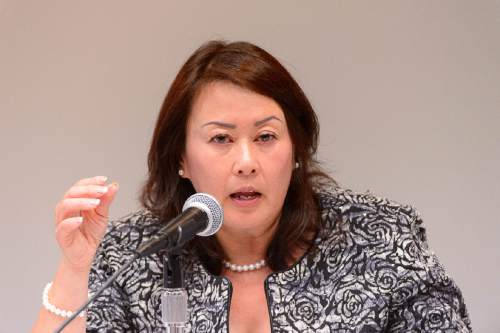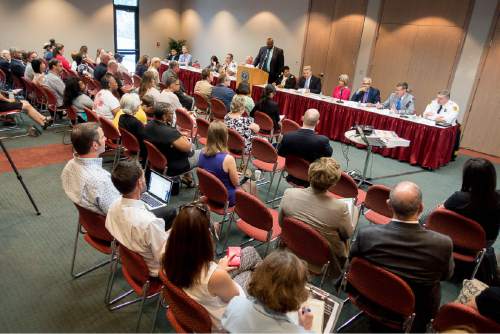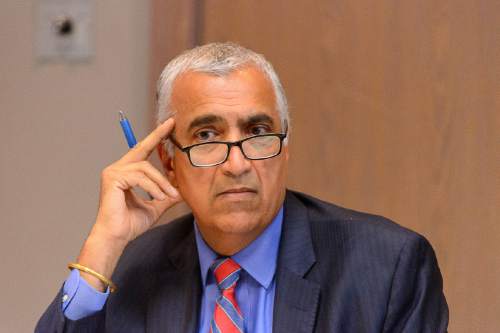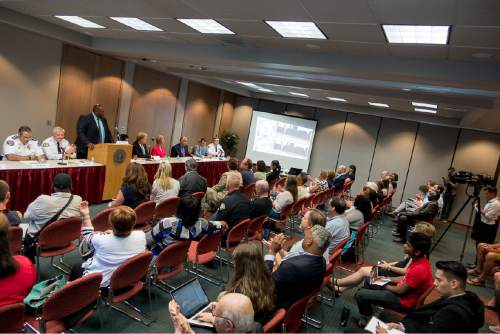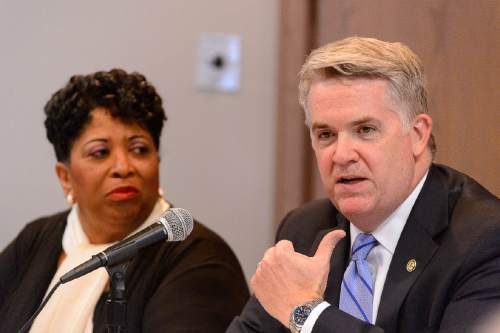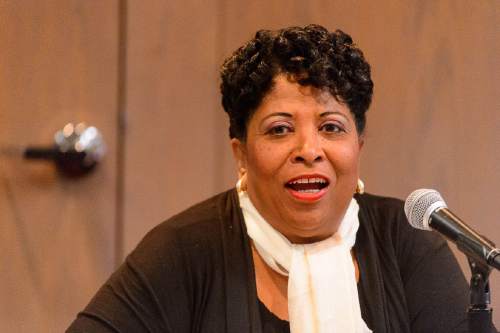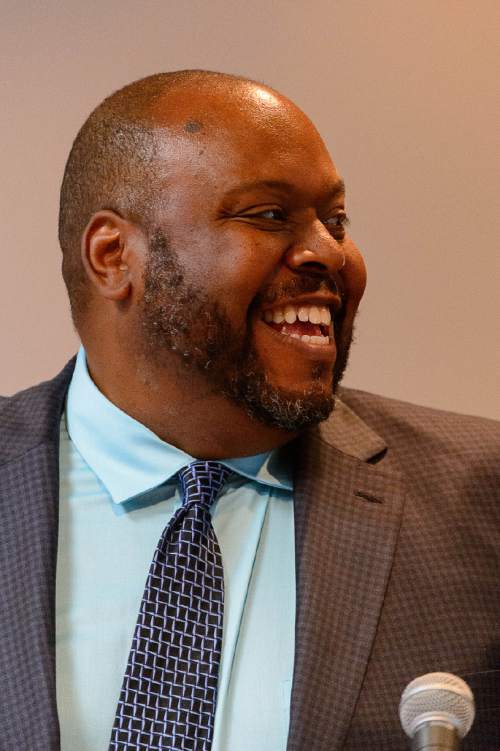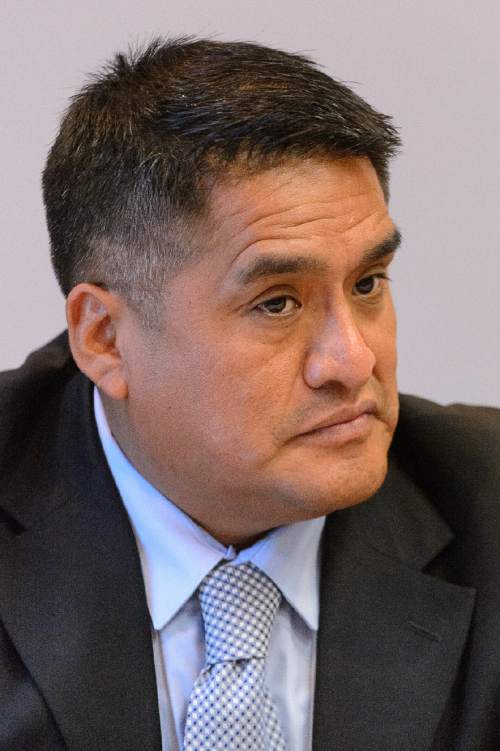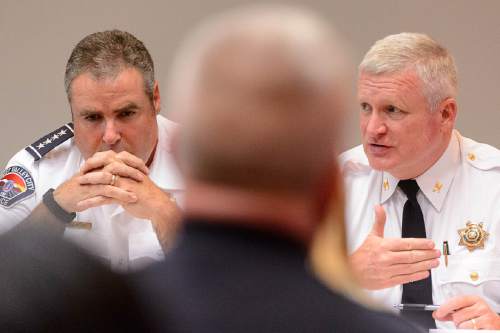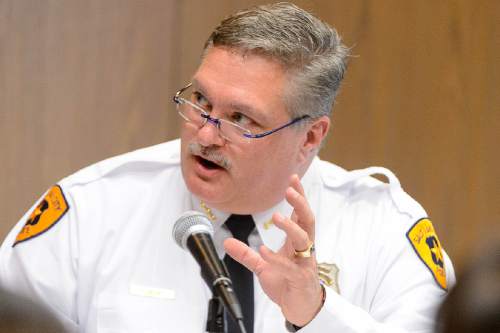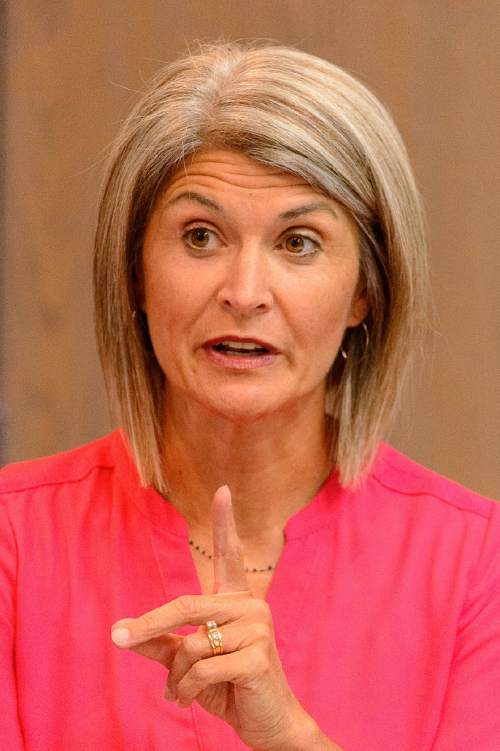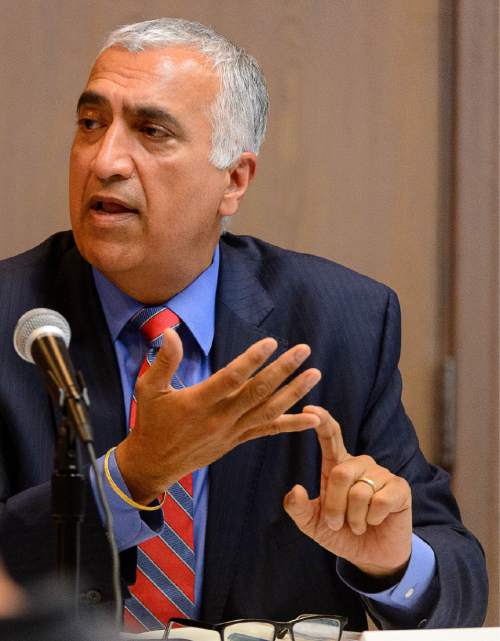This is an archived article that was published on sltrib.com in 2016, and information in the article may be outdated. It is provided only for personal research purposes and may not be reprinted.
Over the past 20 years, Utah law enforcement agencies reported 1,279 hate crimes, according to state data.
But Salt Lake County District Attorney Sim Gill said he has been unable to identify a successful prosecution under the state's hate-crime law. The hurdles are so great that prosecutors bring charges under other laws, such as assault statutes, he said Thursday at a community roundtable discussion about hate crimes.
"I do not have a workable [hate-crimes] statute, and it's about time we did," Gill said.
The discussion, hosted by the Utah Martin Luther King Jr. Human Rights Commission and the NAACP Salt Lake branch, drew about 50 people to the Utah Law and Justice Center in Salt Lake City. Panelists included prosecutors, police, community members and advocacy-group representatives.
Hate crimes are criminal offenses committed with the intent of intimidating or terrorizing a victim based on the offender's bias against a race, religion or other characteristic. Utah's law provides a sentencing enhancement that can be used to bump up the penalty for a crime — for example, a class B misdemeanor assault count can be increased to a class A misdemeanor.
But where the law falls short, Gill said, is that it can be applied only to misdemeanor crimes.
Utah's hate-crimes law also lacks a definition that includes a set of protected classes. The law says people are guilty of a hate crime only if their actions were designed to infringe on victims' ability to exercise their civil rights.
A bill that might have strengthened the state's hate-crimes law failed during the 2016 legislative session. The proposal by Sen. Stephen Urquhart, R-St. George, who is retiring from the Legislature, would have applied equally to victims targeted on the basis of their race, religion, sexual orientation or gender identity.
State Sen. Daniel Thatcher, R-West Valley City, who attended the discussion, said he plans to push for a hate-crimes bill in the next session and believes it will pass.
Under federal law, a hate crime is a criminal offense, committed against a person or property, that is motivated in whole or in part by an offender's bias against a race, religion, disability, sexual orientation, ethnicity, gender or gender identity.
Eric Barnhart, the FBI special agent in charge for Utah, Idaho and Montana, said his agency has a "very high bar" to clear in federal cases. Prosecutors have to prove beyond a reasonable doubt that if it weren't for one or more of the victim's personal characteristics, the crime would not have occurred, he said.
However, other federal laws can be used in hate-crime cases, Barnhart said.
In 2014, a Hurricane man was sentenced in U.S. District Court to a year in prison for violating the Fair Housing Act by writing a threatening letter to members of a neighboring family after a 13-year-old black boy moved in with them.
Robert Keller wrote, "I catch that [N-word] around my daughter I'll kill the ass—— and then go find what stupid person brought him here in the first place."
The mother of the family said the letter made her fearful of her children playing in the park or with other neighborhood kids.
"We have to get creative sometimes," Barnhart said about prosecuting hate crimes.
Twitter: @PamelaMansonSLC


